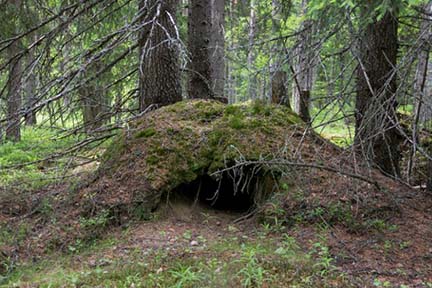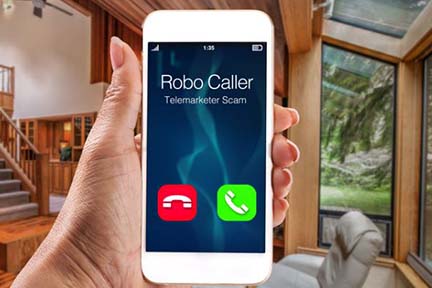| Here are just a few of this week’s stories from the Michigan Department of Natural Resources:
See other news releases, Showcasing the DNR stories, photos and other resources at Michigan.gov/DNRPressRoom.
PHOTO FOLDER: Larger, higher-res versions of the images used below, and others, are available in this folder.
 Throughout Michigan, hunters are preparing stands, blinds and camps for the upcoming firearm deer season, which begins Nov. 15. Although there’s an understandable excitement to hit the woods, everyone must respect the five-day “quiet period” Nov. 10-14. Throughout Michigan, hunters are preparing stands, blinds and camps for the upcoming firearm deer season, which begins Nov. 15. Although there’s an understandable excitement to hit the woods, everyone must respect the five-day “quiet period” Nov. 10-14.
“From sighting in rifles to sprucing up the old deer blind, preseason activities can be a hectic time for firearm deer hunters,” said Capt. Pete Wright, DNR Law Enforcement Division. “The five-day quiet period creates a window of time, just before the opener, when hunters can catch their breath and the woods have a chance to calm.
“This period is like pushing a reset button, allowing deer to settle back into their day-to-day patterns, which in turn increases the chances of a successful hunt.”
During these five days, it is unlawful to transport or possess a rifle or shotgun with buckshot, slug load, ball load or cut shell in an area frequented by deer. Unloaded firearms securely encased or carried in the trunk of a vehicle may be transported to or from a hunting camp. Refer to the 2023 DNR Hunting Regulations Summary for more information.
If you’re hunting for small game or waterfowl, or fur harvesting, you can still carry the appropriate firearm for your season. Small game and waterfowl hunters may carry shotguns with shotshells for hunting small game, but cannot possess buckshot, slugs, ball loads or cut shells during this time. Fur harvesters may carry rimfire firearms (.22-caliber or smaller) while actively hunting or checking traplines during the open furbearing animal season.
Contact the Report All Poaching hotline at 800-292-7800 to report trespassing, shooting or other related natural resource violations.
Questions? Email DNR-LawEnforcement@Michigan.gov. |
 Wow, we asked you to plant trees, and Michiganders showed up: planting and registering more than 100,000 trees on the DNR’s interactive Mi Trees map since 2021. Wow, we asked you to plant trees, and Michiganders showed up: planting and registering more than 100,000 trees on the DNR’s interactive Mi Trees map since 2021.
This amazing turnout for the Mi Trees effort has helped the DNR move toward its goal of planting 50 million trees by 2030 in partnership with 1T.org, a global initiative to plant 1 trillion trees. Much of Michigan’s landscape is privately owned or in urban and community areas, making public participation an important part of the effort.
Why plant a trillion trees? Forests are important for the health of the planet and for us. From simply providing beauty to our landscapes and communities, to creating wildlife habitat, slowing climate change, providing renewable materials for everyday products and even improving mental health, trees are essential.
The Michigan DNR plants about 6 million trees a year on state forest land, with forest management practices that are certified as sustainable by two independent organizations.
If you want to join the effort, find tips to pick the right tree and plant it correctly at Michigan.gov/MiTrees. Be sure to tag them on our map to share your achievement and help us get closer to the Trillion Trees goal.
Questions about tree planting? See our handy guide or contact DNR forestry experts Kevin Sayers, Mike Smalligan or Lawrence Sobson. |
 Whether you’re looking for holiday fun, outdoor exploration or some Michigan history, here’s a sample of what’s on tap! Whether you’re looking for holiday fun, outdoor exploration or some Michigan history, here’s a sample of what’s on tap!
The Outdoor Adventure Center in Detroit is getting in the holiday spirit this month. Contribute to the “Stuff a Truck” toy donation drive and get a photo with Santa and Mrs. Claus Nov. 24-25, and decorate cookies with Mrs. Claus Nov. 25.
Other November events at the OAC include Birding Belle Isle Nov. 12, STEM Family Night – a night of hands-on activities linking nature with science, technology, engineering and math – Nov. 16, plus archery, nature education programs for kids, family hikes and much more. Find more info about these and other programs on the Outdoor Adventure Center events calendar.
Experience one of Michigan’s most unique state parks on horseback during the shoreline horseback riding season at Silver Lake State Park in Mears Nov. 1-30. During this special season, equestrians can ride the Lake Michigan shoreline for a $10 registration fee per horse per day.
Don’t miss “Michigan Makers,” a special exhibit at the Michigan History Museum in Lansing, running through Dec. 3. Discover the stories of Michigan’s tinkerers, artists, thinkers and makers, who might just inspire you to create something new yourself!
And sign up now for the Dec. 9 snowshoe lacing program at Porcupine Mountains Wilderness State Park in Ontonagon, part of the DNR’s Outdoor Skills Academy. Learn how to lace traditional cross-country snowshoes, an excellent way to explore Michigan’s wintry outdoors, and walk away with your own hand-laced pair.
Find a complete list of events at Michigan.gov/DNRCalendar. |
 See more pictures by Michigan state parks photo ambassadors at Instagram.com/MiStateParks. For more on the program, call Stephanie Yancer at 989-274-6182. (This photo is by Ana Easlick, for the Michigan DNR, at Fayette Historic State Park on Big Bay de Noc, Delta County.) See more pictures by Michigan state parks photo ambassadors at Instagram.com/MiStateParks. For more on the program, call Stephanie Yancer at 989-274-6182. (This photo is by Ana Easlick, for the Michigan DNR, at Fayette Historic State Park on Big Bay de Noc, Delta County.)
|







